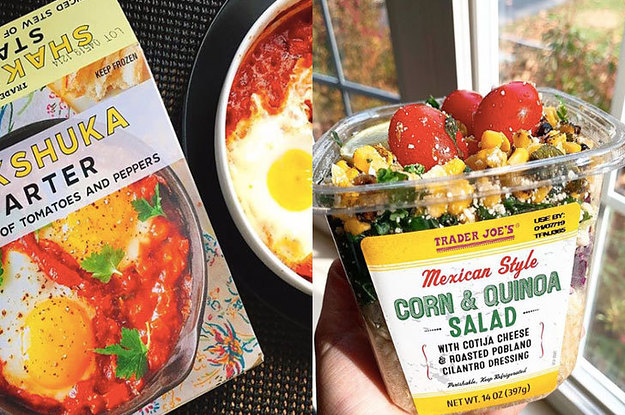
A Mediterranean diet is a lifestyle change that helps you lose weight and maintain a healthy heart. It is rich in heart-healthy foods and can help you live a healthier, longer life. The foods in this diet are high-calorie, but they are also some of the healthiest. The best part about this diet is you can eat whatever you want, just make sure that you are not eating too much.
The Mediterranean diet is based in the idea that eating a variety is better for your heart health. It allows red wine and poultry, but it includes lots of vegetables and healthy fats. The diet also encourages eating whole, nutrient-dense foods and limit processed, added sugars and sodium. It promotes a healthier lifestyle and healthy eating habits.

The Mediterranean diet does not contain much red meat. However, it does contain small amounts nuts and eggs. Research has shown that consuming these foods can reduce the risk of heart disease by 30 percent. There are also benefits to the Mediterranean diet, such as a decreased risk of heart attack and stroke, and dementia. You will also see many other benefits. Read this Mediterranean diet review to learn more. You can also create a new lifestyle by incorporating these foods into your everyday life.
According to the American Heart Association, a review of Mediterranean diets shows many benefits for your health. It lowers your chance of developing hypertension or ischemic cardiac disease. This diet is particularly beneficial for people with diabetes. However, not everyone will be able to eat the Mediterranean diet. Women should limit the amount of wine they consume to one 5-ounce bottle per day; men should drink no more than two glasses. Another benefit of the Mediterranean diet is its moderate dairy consumption. It provides a high-fiber diet that's full of nutrients and fiber.
The Mediterranean diet has another benefit: it is high in fiber. Wholegrains, when compared to white bread, are more filling than refined flour. A Mediterranean diet is low-fat, but high in monounsaturated fatty acids. This makes it less likely that it will cause heart disease. It is lower in saturated and trans fat. In addition, a Mediterranean diet is rich in antioxidants.

High levels of antioxidants are also found in the Mediterranean diet. Studies have shown that the Mediterranean diet lowers the risk for stroke, Alzheimer's, dementia and other diseases. Its antioxidants are also effective in fighting harmful free radicals. The body can be protected from free radical damage through antioxidants in the Mediterranean Diet. This has been shown to reduce the risk of certain types of cancer and cardiovascular disease. In this Mediterranean diet review, we will explore how to get the most out of the Mediterranean diet for diabetes.
FAQ
What does butter do to men?
Butter is one source of saturated fats. This type of fat helps to build stronger bones, healthy skin, and hair.
Butter also contains vitamin K, which prevents bleeding from cuts and bruises. Vitamin K is combined with vitamin C to prevent bruises.
Butter is also rich in minerals, including calcium, phosphorous, and potassium. These elements help to build stronger bones and teeth.
However, butter has some drawbacks. Butter contains high amounts of cholesterol. Studies show that too much cholesterol can increase your risk of developing heart disease.
Also, butter is high in saturated fat, contributing to obesity and increased cholesterol levels.
You can spread butter on bread if you are forced to use it. Bread will absorb more oil than pasta or potatoes.
How do you lose weight?
It can be difficult to lose weight. Many people give in to temptation because they don't know how to proceed.
To lose that extra weight, however, there are simple steps you could take.
You must first ensure that you are consuming fewer calories than what you burn. You will gain weight if you eat more calories than you burn.
Second, you must start exercising regularly to burn off all those calories. There are many types of exercise you can do, such as walking, running, cycling, and dancing.
Third, stop smoking and drinking alcohol. These habits make it more likely that you will consume more calories than you would normally.
Fourth, cut down on junk food and fatty foods. They can be replaced by healthier options, such as fruits and vegetables, lean meats or whole grains, legumes, seeds, beans, and nuts.
Fifth, you need to change your lifestyle and adopt new habits. You may have to get up before the rest of the world to exercise.
Sixth, you must be disciplined and follow your diet plan.
To burn extra calories, you can also join a gym or take an aerobics class.
These simple tips will help you quickly see results.
What is a good 7-day workout schedule?
Three days per week should be spent on cardiovascular training, including running, biking, swimming, and two strength exercises using free weights, weight machine, as well as one flexibility/core exercise such as yoga, Pilates. Each activity should be done at least once per week. The total time for each session should not exceed 45 minutes.
Cardiovascular Exercise: Running/Biking/Swimming
The goal is to get in at least 60 minutes of cardio activities per week. You can aim for 75 minutes a week for best results. Cardio exercise can stimulate blood flow and increase muscle growth.
Strength Training
While cardio exercises target the heart and lungs, strength training targets the muscles and bones. Strength training builds lean muscle mass, which helps burn calories even when resting.
Flexibility and core workouts
To strengthen your whole body, flexibility and core work outs are excellent ways to do so. Both yoga as well as Pilates are great choices.
Are you a cardio-exercise fan?
Cardiovascular exercise is a great way to improve your cardiovascular health. It improves blood circulation, strengthens heart muscle, gives you energy, and can even help you lose weight.
Cardiovascular exercise includes running, biking, hiking, swimming, tennis, basketball, soccer, volleyball, football, etc.
Cardio exercises should not be done at high intensity. This could lead to injury.
Cardiovascular exercise should be done only if you feel well.
It is important not to push yourself beyond your limits. In this way, you may injure or even kill yourself.
Cardiovascular exercise is best done warm-up first. Gradually increase the intensity.
You must always listen to what your body is telling you. You should stop immediately if you feel any pain while doing cardiovascular exercise.
After a cardiovascular training session, it is recommended that you take some time to relax. This allows your muscles time to recover.
Cardiovascular exercise can help you lose weight.
It is the most effective way to burn calories and reduce belly fat.
Statistics
- According to the American Heart Association, blood pressure should be checked at least once every two years, beginning at age 20. (my.clevelandclinic.org)
- Are You One of the 20% of Guys (mh.co.za)
- By John Thompson Take a whopping 38% off a set of PowerBlock Pros. (menshealth.com)
- An estimated calorie range for moderately active adult males falls between 2,200 to 2,800 calories per day, depending on age. (eatright.org)
- Cardmembers earn 5% Back at Amazon.com with a Prime Credit Card. (amazon.com)
External Links
How To
How do I lose fat by exercising?
Exercise burns calories through increased metabolism and oxygen consumption.
If you exercise with moderate intensity, you can safely lose weight.
These tips will help you burn fat and keep fit while exercising.
-
Cardio exercises include swimming, running or cycling.
-
You can exercise for 30 mins three times per week.
-
Strength training is a great way to lose weight.
-
Avoid doing intense exercises. You can build muscle without breaking down muscle tissue.
-
Hydrate well during exercise. Water helps to flush out toxins from the body and maintains proper hydration.
-
After working out, make sure to drink low-fat proteins shakes. Protein shakes boost energy and repair muscle tissue.
-
Smaller meals are better for you.
-
Don't skip breakfast! You can feel tired and slow if you skip breakfast.
-
Take care of your mental health. Stressful situations can slow down metabolism.
-
Keep a positive attitude. Studies show that overweight people are more likely to be obese than those who perceive themselves as attractive.
-
Get enough sleep. Insufficient sleep can make it more difficult to lose weight.
-
Stay active. Make sure you get up and move every hour.
-
Maintain a healthy diet. You will feel fuller longer if you eat right.
-
Relaxation is possible by finding ways to relax. Relaxing doesn't mean your body releases stress hormones which cause muscle tissue to be destroyed.
A balanced diet contains all necessary nutrients for growth and development.
Six small meals per day is better than three large meals. This gives your body time and energy to process the food.
Calcium is required to support strong bones. Calcium can also be found in milk products, yogurt, fortified Soy beverages, orange Juice, cereals and bread.
Calcium is found in green leafy vegetables, beans, tofu, seeds, nuts, and cheese.
Vitamin D is essential for calcium absorption. Vitamin D is found in eggs yolk, fatty fish and fortified foods.
Vitamin E is essential for skin health. Vitamin E is found in vegetable oils and wheat germ oil, as well as peanuts, almonds and sunflower seeds.
Your body requires zinc for normal immune function and wound healing. Zinc can also be found in legumes, oysters, meats and whole grains.
Zinc deficiency may cause fatigue, loss appetite, depression, and impaired immunity.
Consuming too much sugar can cause insulin resistance. This causes an increase in blood glucose levels. Insulin resistance leads to weight gain.
When there is a high level of free radicals, insulin resistance can develop. Free radicals are molecules containing unpaired electrons which cause damage to cells membranes.
Food additives, pesticides and herbicides, as well as preservatives, smoking and radiation are all sources of free radicals.
Free radical damage can cause cancer, heart disease and diabetes, as well as arthritis, asthma, and other diseases.
A well-balanced diet rich in antioxidants is the best way for you to avoid free radical damage. Antioxidants protect against oxidative damage.
Vitamin C can be found in citrus fruits. Beta carotene can be found in carrots. Sweet potatoes. Tomatoes. Carrots. Sweet potatoes. Spinach. Broccoli. Cantaloupe. Vitamin E is found in nuts. Olive oil, avocados.
Selenium, copper and manganese are all antioxidant nutrients.
Selenium is known to protect cells from the oxidative damage that free radicals can cause. Selenium may be found in Brazil nuts as well tuna, liver and kidneys. It can also be found on shrimp, cod, turkey, beef lamb, pork, chicken, and other foods.
Copper protects eyes, brain, lungs and red cells. Copper can be found in meat, shellfish, meat, and organ meats.
Manganese forms an essential part of bone structure. Manganese is found as a component of bone structure in brown rice (spinach, bananas), prunes, raisins and oatmeal.
Zinc is important for healthy growth, reproduction, and wound-healing. Zn can be found in lean cuts, white fish, poultry, eggs, and other foods.